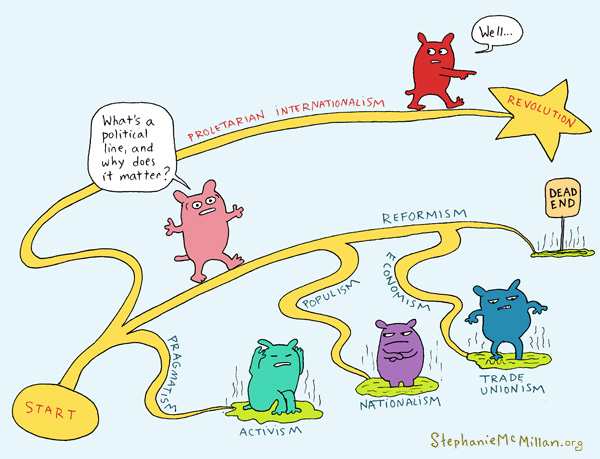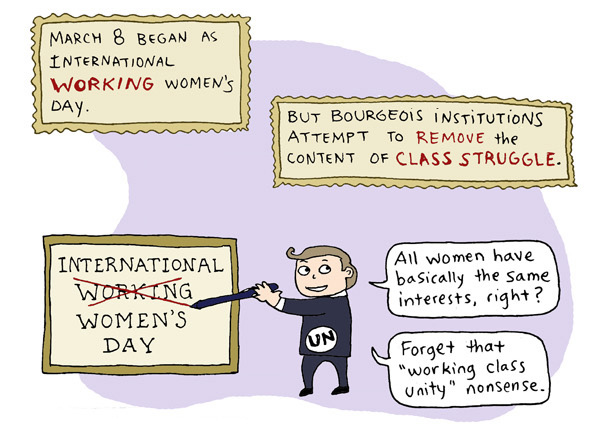Trotsky vs. a Trotskyist vs. Our Position: a Three-Way Conversation, Part 3
by Jan Makandal
January 21, 2016
76 years ago, Trotsky correctly observed that trade unions were progressively degenerating and fusing with imperialism. That gradual degeneration has, at this point in time, reached its maturity point—institutionalized forms of organized labor have become capitalist organizations, even with workers and laborers as members.
The bureaucratic bourgeoisie—a fraction of the capitalist class—has historically developed within the leadership of organized labor. The problem is not a simple issue of bad or corrupt leadership. The issue lies with the entire structure of organized labor that has now been absorbed—institutionalized— into capitalism. Trotskyists, viewing the process of degeneration as static, will never see this reality.
Institutionalized labor is now a historical form of capital accumulation. Dues, corruption, strike funds, retirement funds, and government stipends are all forms of capital accumulation. Although dues-paying members are currently the principal form of accumulation, it is important that we also point the finger at corruption.
Corruption is a common form of capital accumulation by the capitalist class. Many think that it can simply be corrected by anti-corruptive measures. This reformist conception reduces corruption to the act of stealing, and ignores the fact that contemporary capitalism is an historical form of accumulation rooted in mercantile capitalism (trade).
In most cases, under capitalism, corruption becomes a material condition for the development of the bureaucratic bourgeoisie. This problematic fraction of the capitalist power bloc shares a lot of tendencies with fascism, and functions in contradiction with some foundational elements of capitalism, such as competition. Setting moral boundaries for corruption represents the inter-class struggle among capitalists to limit, control or advance the constitution of the bureaucratic bourgeoisie.





